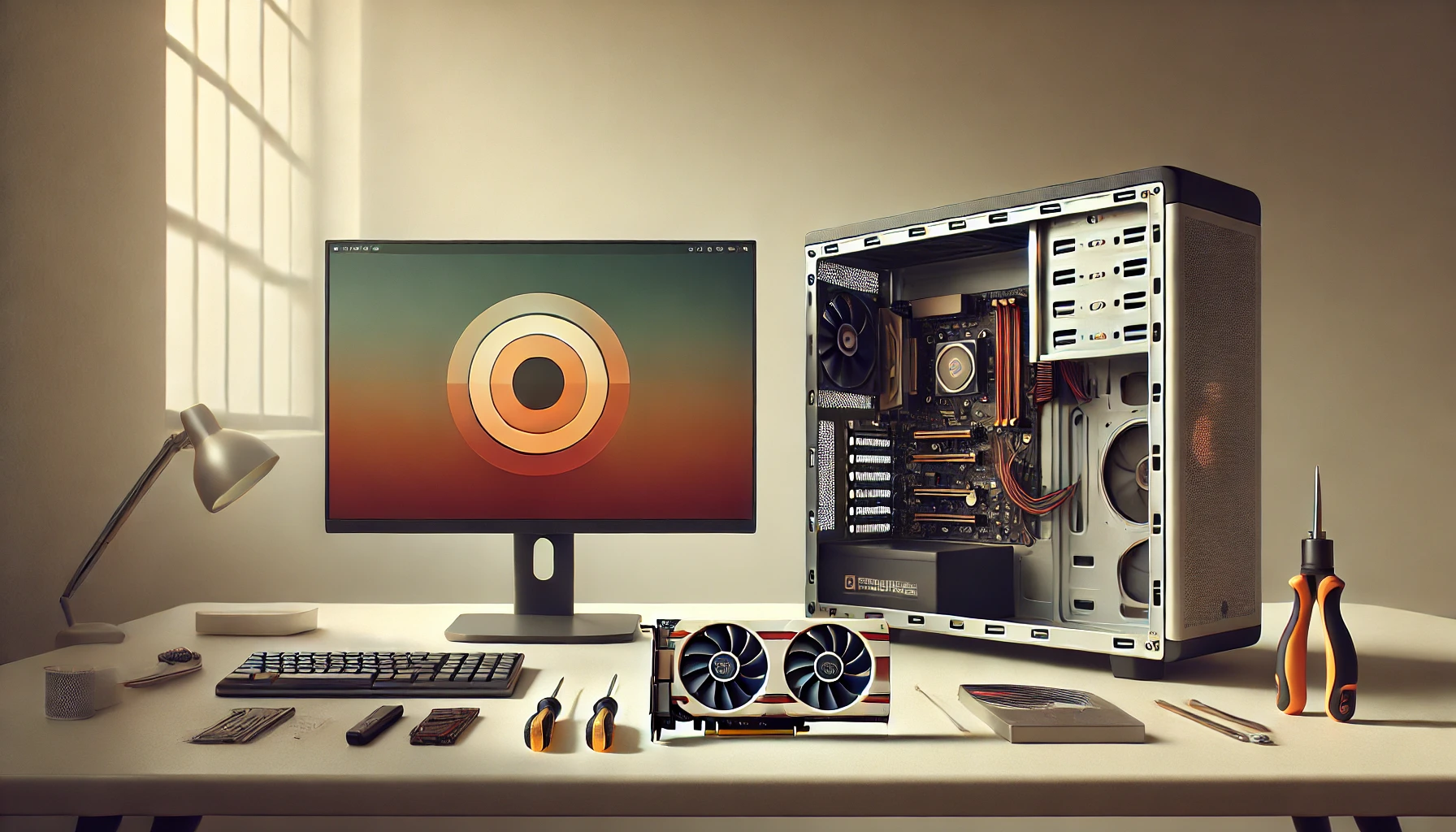As part of a personal project, I equipped myself with an NVIDIA GPU (an RTX 3060) to properly run LLM models locally.
To easily use different models, I rely on OpenWebUI (with Ollama). Since the installation can be a bit of an adventure, I’m summarizing the steps here.

Configuration Used
On my PC, I have:
- OS: Ubuntu 24.04 LTS (Official page)
- GPU: NVIDIA RTX 3060 (affiliate link)
- CPU: AMD Ryzen 7 5700G (affiliate link)
- RAM: 52 GB
- Storage: Samsung SSD 990 EVO 1TB (affiliate link)
This setup allows me to properly run 14B models (around thirty tokens/s).
Installing the Nvidia Drivers
There are several methods; I used the one from the Ubuntu site: NVIDIA drivers installation
In summary, run:
sudo ubuntu-drivers list
sudo ubuntu-drivers install
Then verify with nvidia-smi. You should get something like this:
+-----------------------------------------------------------------------------------------+
| NVIDIA-SMI 550.120 Driver Version: 550.120 CUDA Version: 12.4 |
|-----------------------------------------+------------------------+----------------------+
| GPU Name Persistence-M | Bus-Id Disp.A | Volatile Uncorr. ECC |
| Fan Temp Perf Pwr:Usage/Cap | Memory-Usage | GPU-Util Compute M. |
| | | MIG M. |
|=========================================+========================+======================|
| 0 NVIDIA GeForce RTX 3060 Off | 00000000:01:00.0 On | N/A |
| 0% 39C P8 10W / 170W | 664MiB / 12288MiB | 1% Default |
| | | N/A |
+-----------------------------------------+------------------------+----------------------+
+-----------------------------------------------------------------------------------------+
| Processes: |
| GPU GI CI PID Type Process name GPU Memory |
| ID ID Usage |
|=========================================================================================|
| 0 N/A N/A 2909 G /usr/lib/xorg/Xorg 281MiB |
| 0 N/A N/A 3245 G /usr/bin/gnome-shell 138MiB |
| 0 N/A N/A 20152 G ...onEnabled --variations-seed-version 140MiB |
+-----------------------------------------------------------------------------------------+
Installing Docker with NVIDIA GPU Support
No particular difficulties here; just follow the documentation (and don’t forget to reboot your PC after installing the NVIDIA toolkit).
Docker
Follow the official documentation. I chose the method with apt repositories: install-using-the-repository. Don’t forget the post-installation steps: linux-postinstall (to avoid using sudo for each Docker command).
NVIDIA Container Toolkit
Same as before, I used the official documentation with apt: install-guide.html#installing-with-apt to install the Toolkit.
Then configure Docker: install-guide.html#configuring-docker
Proceed to the verification step to ensure Docker can indeed use the GPU: running-a-sample-workload.
You should get something like this:
sudo docker run --rm --runtime=nvidia --gpus all ubuntu nvidia-smi
+-----------------------------------------------------------------------------------------+
| NVIDIA-SMI 550.120 Driver Version: 550.120 CUDA Version: 12.4 |
|-----------------------------------------+------------------------+----------------------+
| GPU Name Persistence-M | Bus-Id Disp.A | Volatile Uncorr. ECC |
| Fan Temp Perf Pwr:Usage/Cap | Memory-Usage | GPU-Util Compute M. |
| | | MIG M. |
|=========================================+========================+======================|
| 0 NVIDIA GeForce RTX 3060 Off | 00000000:01:00.0 On | N/A |
| 0% 43C P8 12W / 170W | 625MiB / 12288MiB | 31% Default |
| | | N/A |
+-----------------------------------------+------------------------+----------------------+
+-----------------------------------------------------------------------------------------+
| Processes: |
| GPU GI CI PID Type Process name GPU Memory |
| ID ID Usage |
|=========================================================================================|
+-----------------------------------------------------------------------------------------+
Ollama and OpenWebUI in docker-compose
We’re almost done!
To easily manage Docker (on a local network), I like to use Portainer. But you can also do it with Vim, of course, I’m not picky.
To write my docker-compose.yaml, I used the OpenWebUI example: docker-compose.yaml.
To allow Docker to use the GPU, I relied on this example: docker-compose.gpu.yaml.
Which gives:
services:
ollama:
volumes:
- ollama:/root/.ollama
container_name: ollama
pull_policy: always
tty: true
restart: unless-stopped
image: ollama/ollama
deploy:
resources:
reservations:
devices:
- driver: nvidia
count: 1
capabilities:
- gpu
open-webui:
build:
context: .
args:
OLLAMA_BASE_URL: '/ollama'
dockerfile: Dockerfile
image: ghcr.io/open-webui/open-webui:main
container_name: open-webui
volumes:
- open-webui:/app/backend/data
depends_on:
- ollama
ports:
- 3000:8080
environment:
- 'OLLAMA_BASE_URL=http://ollama:11434'
- 'WEBUI_SECRET_KEY='
extra_hosts:
- host.docker.internal:host-gateway
restart: unless-stopped
volumes:
ollama: {}
open-webui: {}
That’s a basic installation for simple use (don’t you dare put this into production as is!).
Feel free to share your feedback and enjoy chatting with your LLMs :-)